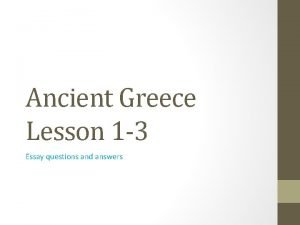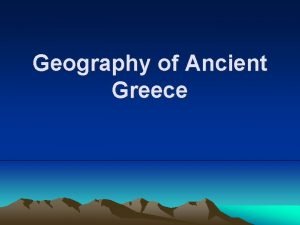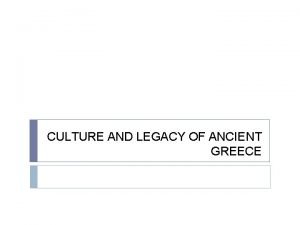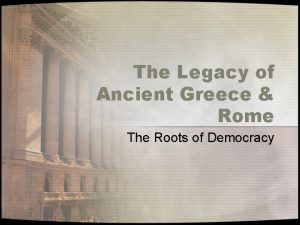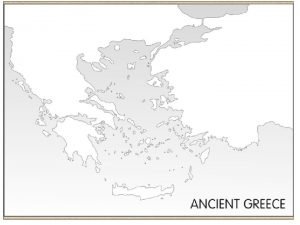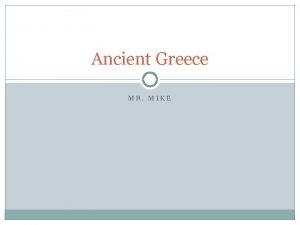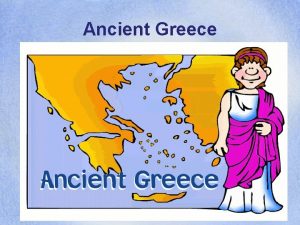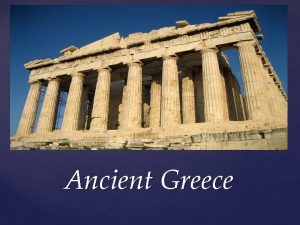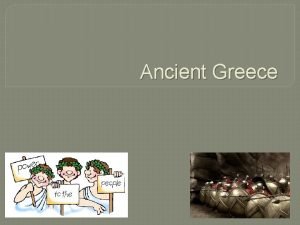Ancient Greece Lesson 1 3 Essay questions and





- Slides: 5

Ancient Greece Lesson 1 -3 Essay questions and answers

Identify and describe two things that Greek city-states had in common. Although the Greek city-states developed very differently due to the geography of Greece, they still had similarities. For example, all of the Greek city-states spoke Greek, and thought less of those that did not speak Greek. They also shared religious ideas and would worship the same gods and goddess. Finally, a typical city-state would include an agora, or public marketplace, and an acropolis.

Why might Homer’s work have been important to later generations? Homer's work would come to influence the later generations. His Illiad and the Odyssey are still widely read today by people in school. There have also been several movies, television shows, and books that have been inspired by the works of the blind poet.

How did the Greeks view the role of religion in their live? Greek religious beliefs did not stress the importance of personal morality. Instead, it focuses on three things. The first was nature. For example, the Greek used mythology to explain the changing of the seasons. Second, religion was used to explain people’s emotions, such as falling in love. Finally, the Greeks used their religion as a way to benefit during their lifetime. An example of this would be praying for a good harvest.

How does direct democracy differ from representative democracy? Direct democracy was used by the Athenians. In this form of democracy all citizens participated directly in making decisions. However, being a citizen with political rights only applied to men born in Athens. Direct democracy is different from representative democracy. In today’s representative democracy, citizens elect representatives to govern for them.
